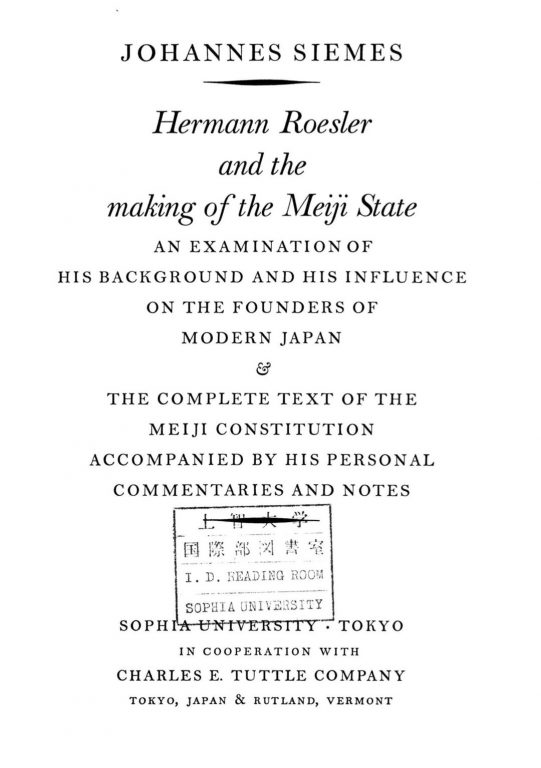Hermann Roesler and the making of the Meiji StateJohannes Siemes
Monographs (1968) pp. 1–252
The Meiji leadership was committed to an authoritarian form of government. At the same time it was also clearly committed to a constitutional system. The mid and late eighties saw the efforts of Japan’s most capable leaders directed to the formulation and rationalization of this ambivalent system. Because German socio-political ideas played an important role in this process, it is necessary to examine closely the extent of German influence on the Japanese leaders.
All the standard Western works on Meiji Japan refer in passing to the ‘deleterious’ influence of German, and in particular of Prussian, political and legal theories. The name of Hermann Roesler is often mentioned, but a detailed analysis of his thought is hard to find; thus the ‘reactionary’, ‘conservative’, and ‘absolutist’ implications of German influence on Meiji Japan are usually accepted as postulates which need neither proof nor explanation.
1968. 252 pages.
Hardback ¥2,000/$20.00/€20.00.
